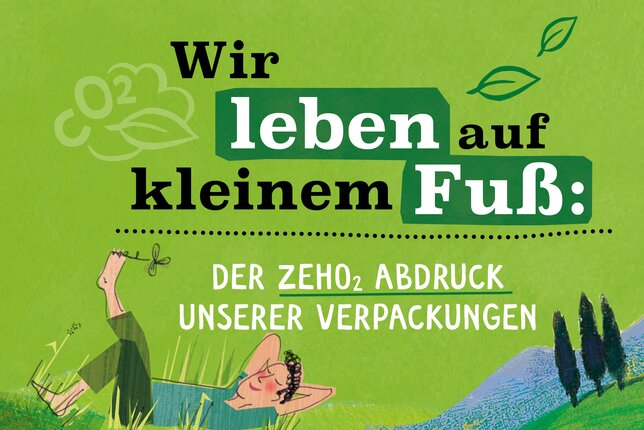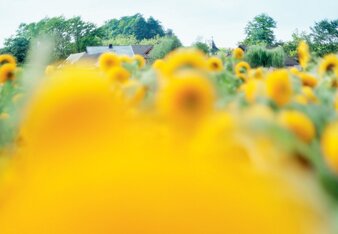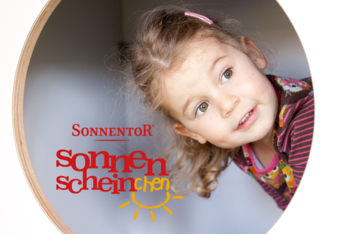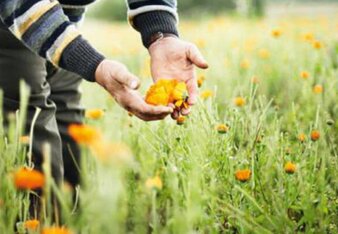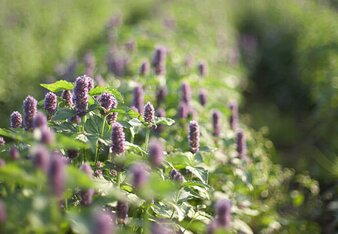Our smiling sun stretches its rays to over 50 countries around the world. It is great to see that the ideas of organics & sustainability are gaining more and more fans. At the same time, the growing demand for our products leaves traces - in the form of CO2 emissions. To reach our enthusiastic customers, we need a lot of energy. Transport and heating are major sources of CO2 emissions - a total of around 260 tonnes. One might almost think that economic growth and sustainability are contradictory. SONNENTOR has set out to prove the opposite - with success. How it works? There is no simple recipe, but a series of energy-saving ingredients.
Organic uses less CO2.
When sourcing our valuable raw materials, we focus on locality. Unfortunately, not all herbs and spices grow around the corner. Ginger, turmeric & Co feel more comfortable in warmer climates. However, whether our raw materials come from Austria, Albania or Tanzania, we rely on fair and sustainable trade and organic farming all over the world. This produces about 25 percent less CO2 than conventional agriculture. For the transport of our products, we use trucks that would have returned to their home country empty. No unnecessary traffic is created. And our customers can enjoy a wide range of SONNENTOR products.
Manual work protects the environment and secures jobs.
After the raw materials are cultivated and harvested as environmentally friendly as possible by our organic farmers, they arrive in our production plant in Sprögnitz. Here, we believe in manual work as it saves our environment a lot of CO2. We only use machines, if necessary, e.g. when filling spices into bags. Another advantage of manual work is the creation of many new jobs and guaranteed best quality as our employees keep an eye on what leaves our warehouse. By the way, our staff come largely from the surrounding area which keeps commuting and traffic to a minimum.
We swim against the current - with sun, wood and green electricity
Our herbs like to be stored in a perfect environment. To make sure that they don’t get too cold in winter, a woodchip system ensures optimum conditions in our storage and production halls. We obtain the wood chips from waste wood from our local organic farmers. The combustion produces only create as much CO2 as would naturally occur in the rotting forest. For our electricity needs we make use of the power of the sun. Our photovoltaic plant produces 30,000 kwh of electricity per year - 10% of our overall energy consumption. We cover the remaining electricity requirements with 100% green electricity.
No humbug, but humus.
Manual work, sustainable transport and the use of renewable energy help us keep our ecological footprint small. Yet, CO2 emissions cannot be avoided entirely, especially due to transportation. For us to be able to operate CO2-neutrally, climate compensation is the key. This is where our cooperation with the Ökoregion Kaindorf comes into play. SONNENTOR supports the effort of methodical humus build-up - and therefore the binding of CO2 in the ground. Further positive side effects are nutrient-rich and healthy soils.
Our next goal: a negative carbon footprint. An important step for this was the launch of our own SONNENTOR organic farm, the Frei-Hof, our first step towards self-sufficiency.
